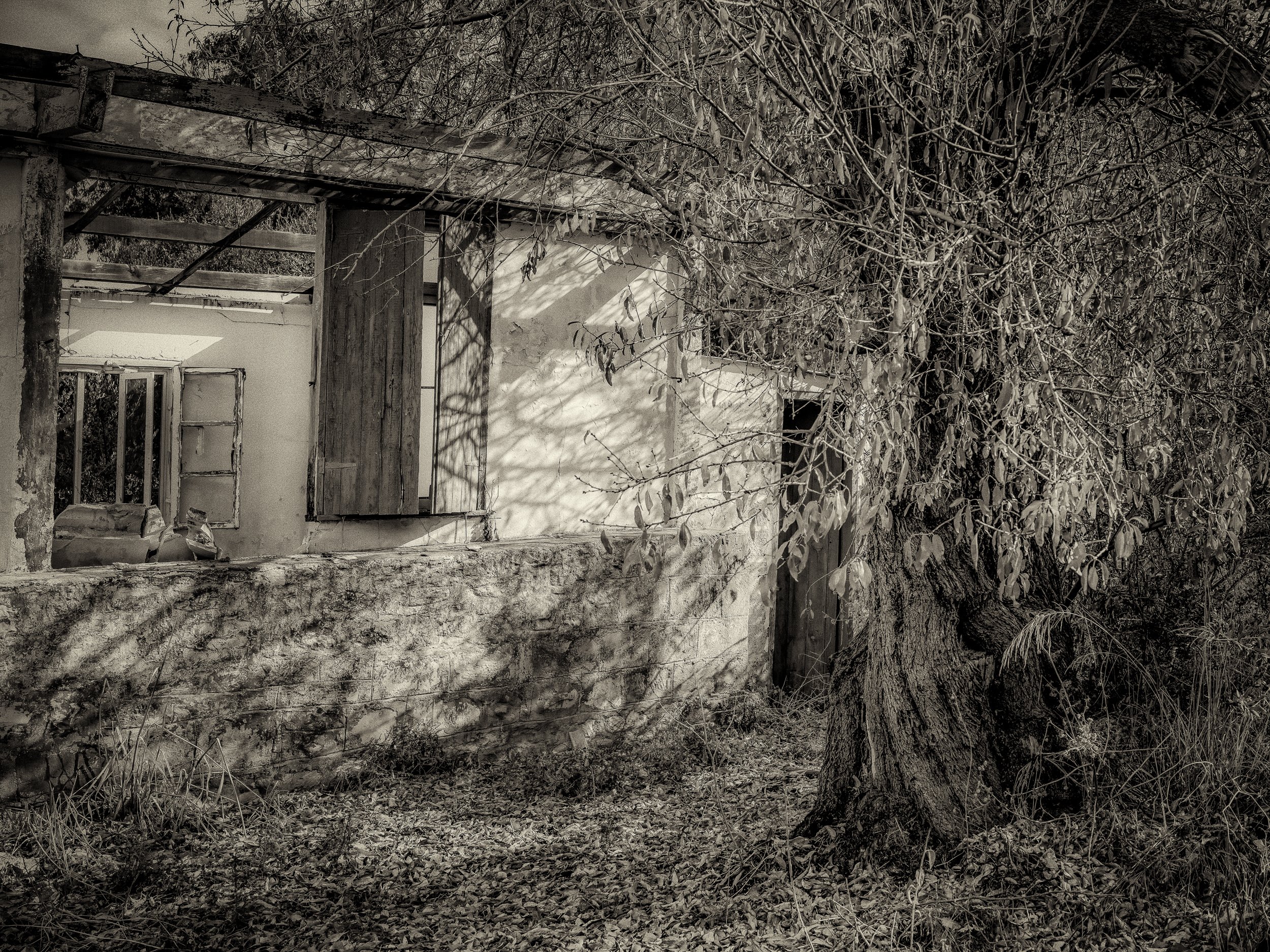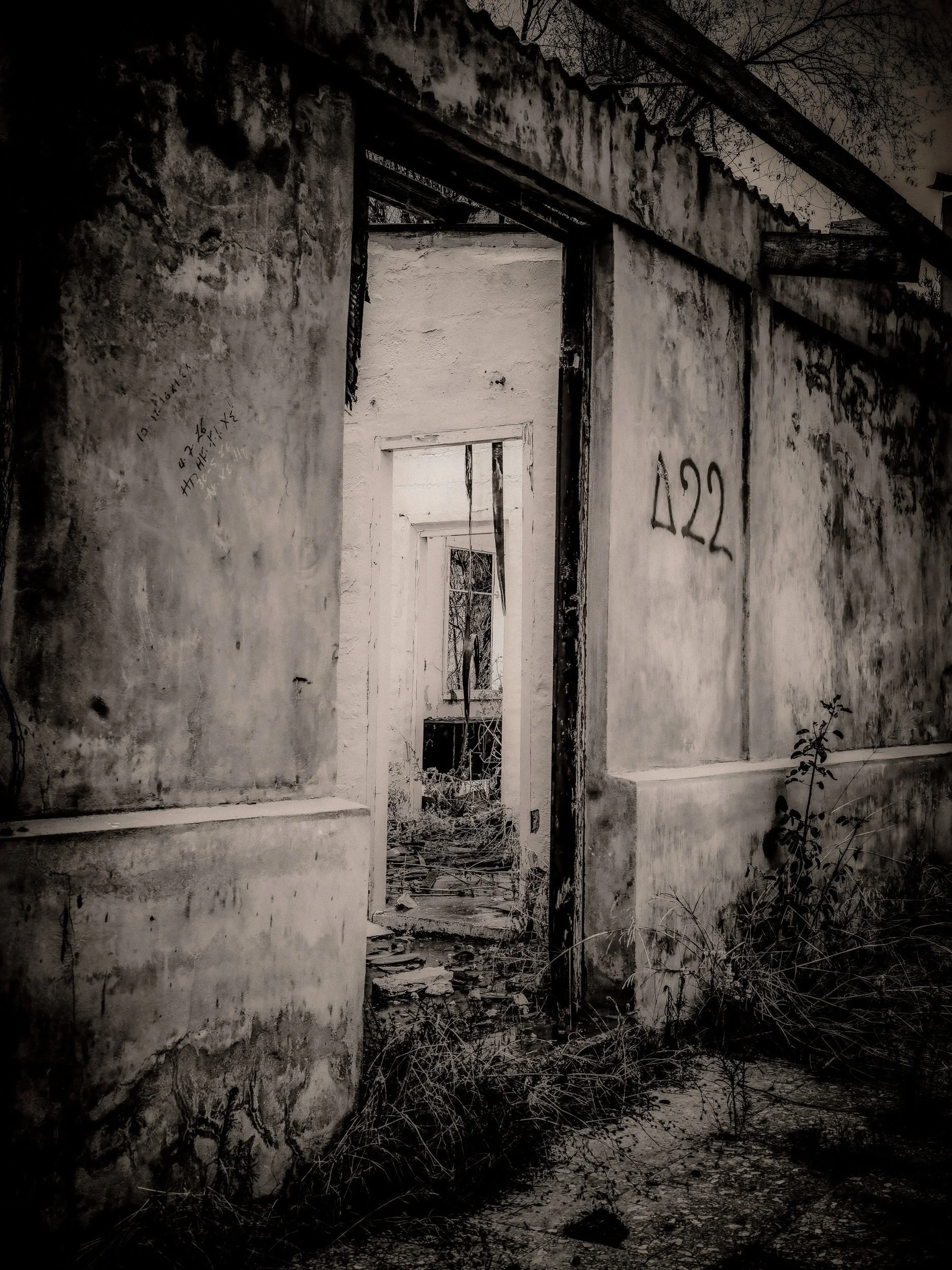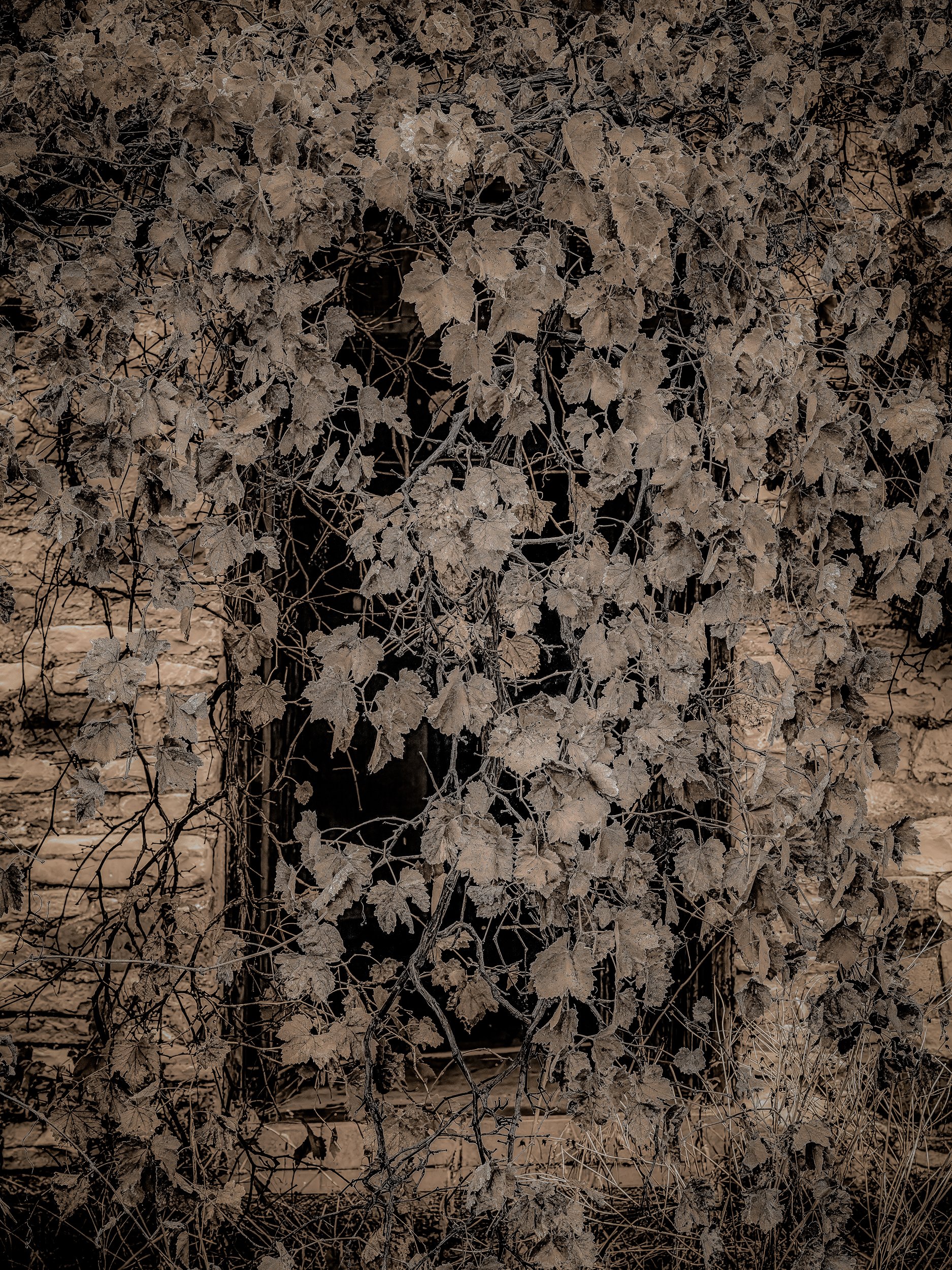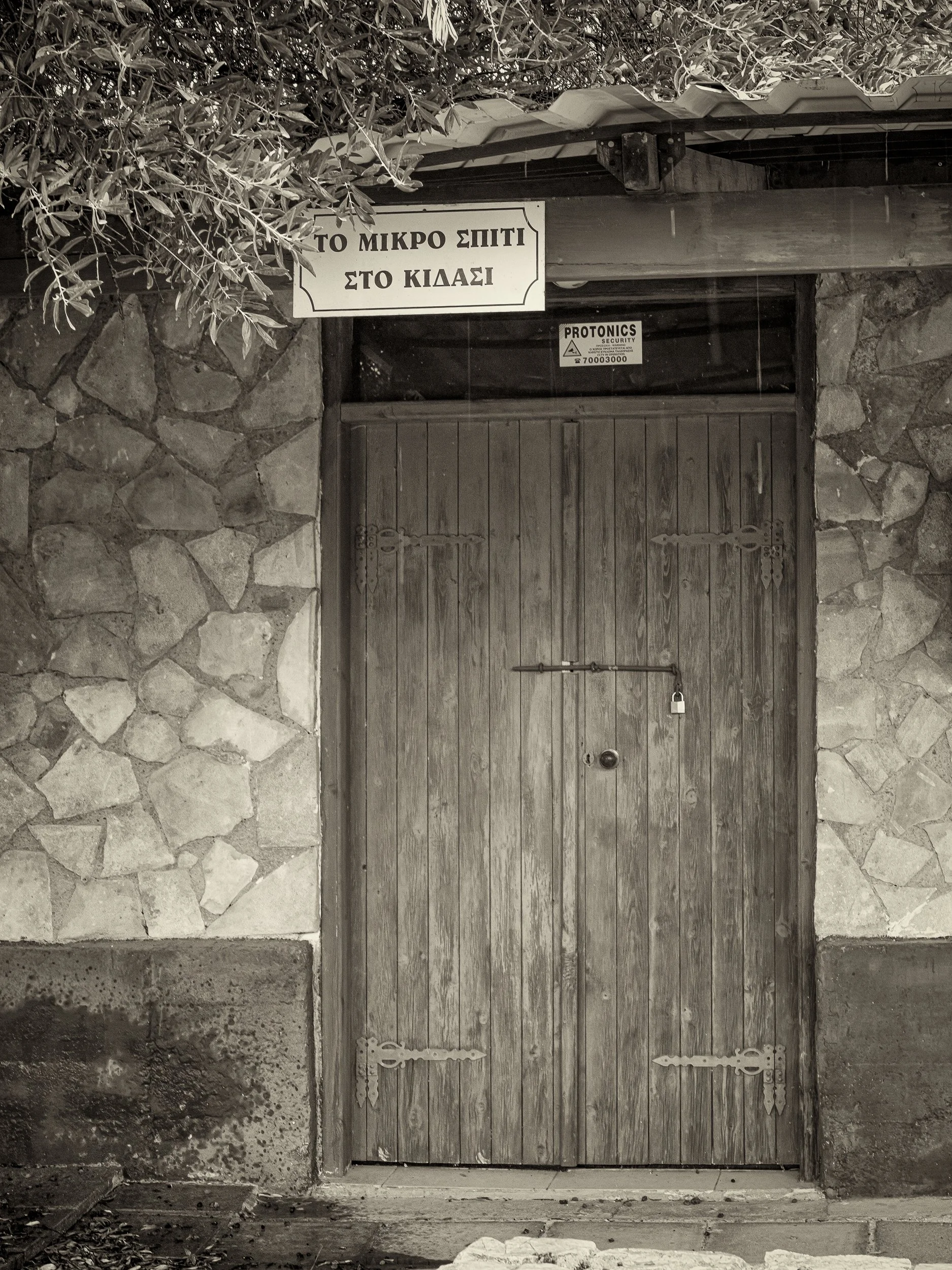Abandoned Villages of the Diarizos Valley: 5)
Kidasi/ Jiyas - Resurrected
The House That Waits
War rolled in like thunder's kin,
They fled—I stayed, and caved within.
My hearth went cold, my walls went blind,
Yet still I dreamed, I stayed behind.
Rain tried to wash the years away,
Wind whispered doubt day after day.
But I, with stubborn beams and stone,
Held stories deep, and stood alone.
Once painted red, now kissed by rust,
But bones of stone don't yield to dust.
My floors still creak, my roof still sighs,
But hope peeks in through shattered skies.
Now—oh now! I hear them near,
Bootsteps soft and voices clear.
A baby's wail, a kettle’s cry,
A breath of bread, a whiff of pie.
A child’s cry splits the stubborn dawn,
A fire kindles, barely drawn.
Is this how home begins to grow—
From what we lost, from what we know?
They used to call us ghosts, empty forgotten villages that violate our hushed, pastoral valley. For a lifetime I have stood empty—stone walls settling, roof tiles sliding loose like old teeth, windows staring blankly across the valley, passing wind carrying a babel of whispers.
But lately, I hear different sounds: footsteps on gravel, laughter drifting in on late afternoons, the sharp bark of dogs chasing through the underbrush. Life, impossibly, is returning.
How curious, all this noise. After nearly fifty years of silence, of wind sweeping through my broken windows and ivy settling in like an old tenant—now there are voices again, footsteps. How can this be? Who are these people, trailing laughter and dogs and the scent of fresh bread into a place long forgotten?



It began with a single light in the house just above the bend, then smoke curling from a chimney. A couple arrived, strangers to me but familiar in the way they moved—measured, patient, like they meant to stay.
Other houses are waking too. A family has taken one of the red-roofed cottages, their windows lit with the golden haze of evening dinners. I hear them sometimes, calling for their dogs or remonstrating with their children. Others have begun to patch roofs and hang flower boxes from sills. One by one, quiet, slumbering ruins are being stirred awake. There’s no rush. Time moves differently here—slower, perhaps wiser—allowing things to settle and grow without pressure.
But I shouldn’t get too excited as Kidasi’s fortunes have a habit of ebbing and flowing. Here the Hassamboulia gang had their highs and lows, highwaymen hiding in our crystallised limestone rocks straddling the main valley thoroughfare. Only to be betrayed and meet their end in a shoot-out in a Kidasi hideaway.




And when it comes to resurrections the village’s record is not that inspiring. The great earthquake that struck the region a lifetime ago brought almost total destruction to the village. I mourned the loss of many of my kin structures that left a hollow ache in my foundations. Eventually rebuilt only to fall victim not to tremors of the earth, but to the quake of man’s disharmony. Overnight we became a village sound in bricks and mortar but sterilised of human life, the inhabitants dispersing who knows were. Those who abandoned us have not returned. Given the state I have fallen into I would not say no to a second coming, whatever the language spoken around my hearth.
Like new spores that will become roots of a fresh identity, those who have settled do not speak the mosaic language of my progenitors. Instead I hear the idiomatic and rhythmic version of the Hellenic language with its multi-cultural influences that is spoken up and down the valley. Only in this case it is not spoken by natives of the valley but by those displaced from their own homes elsewhere on our weathered island. There seem to be few strangers to displacement.



Refugees like Kyria Yiannoula’s husband, proprietor of the reassuringly named Oasis Tavern that guards the entrance to the village, offering traditional Cypriot food to passers-by all year round . Nearby their son, Irineos, a young entrepreneur with a motor bike, runs a small roadside pop-up café on the main valley highway.
Together they announce life is back in the village with the soft clink of crockery and hand written offerings. Wayfarers stop here, drawn in by the smell of coffee and the promise of warm provender. Sometimes they linger longer than expected, asking about the other houses, unoccupied … the ones like me.




I wonder often about the ones who left me. Where did they go? Did they settle into new homes and never looked back? Do they remember the way the light used to pour through my eastern window or the creak of the floorboard just inside the door? Could these new arrivals be their children, or strangers entirely—urban souls chasing quiet, charmed by decay and the illusion of starting fresh where something old once stood?
And what happens if the original owners return? Would they knock on my door, keys in hand, surprised to find others walking paths they once knew as children? Or perhaps they wouldn’t recognize me at all, softened by moss and time. I wonder what the future holds—will I be restored, painted, filled with books and music again? Or will I be left just as I am, a monument to something lost and something found? In this strange in-between, I wait, watching as the valley stirs, as stories old and new twist together like vines on my walls.



Sometimes I imagine them—those long-gone hands that built me, shaped my stones, and laughed within my walls. Do they know people are drifting back? Would they approve of the converted tavern at the village’s entrance with its mismatched chairs and hand-painted sign? Or would they mock, shake their heads at tourists sipping espresso where sacks of grain once sat? It’s strange, the way time folds in on itself here. These new people plant herbs in rusted pails and call it charm. But I remember when those pails were used to carry water from the river, when life wasn’t curated but simply lived.
And yet, isn't it something? To see life return, not in a grand rush, but in quiet choices—one person fixing a roof, another walking their dog at dawn, a couple asking, “Could we live here?” I find myself wondering how many of us will be woken. Will the village be full again, humming with voices and barking dogs, clotheslines strung between trees? Or will this remain a strange halfway place—part memory, part experiment?





Still, I can't help but be wary. What if too many come? What if they change things beyond recognition—tear down, rebuild, rename? And what if the past does come walking back, with title deeds and dusty photo albums in hand, expecting everything to be just as they left it? Will there be space for them too? Or will they be strangers here, just like the rest? I suppose that’s the gamble of waking up: nothing is ever quite the same. But maybe, just maybe, that’s the beauty of it.
I remain empty still, my door leaning off its hinges. But I no longer feel forgotten. Not anymore. A child leaned against my wall yesterday, tracing her finger along the stone as her dog sniffed the threshold. People are starting to leave things again—coats on nails, boots on floors, names on doors. These small signs of return are louder than any voice, and I listen. It may take time, but I believe someone will come for me, too.






Until then, I stand and watch, hopeful as only an old house can be.
Kidasi/ Jiyas Population Census
Source: PRIO - Cyprus


